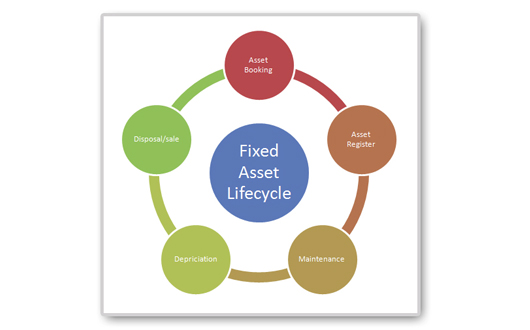All news » Corp Tax and Vat on Fixed Assets
Corp Tax and Vat on Fixed Assets

Fixed assets are considered all assets that are not consumed during the course of business; these can be buildings, lands, equipments, cars or other items. In accounting terms, the term “fixed” does not mean that the asset is immovable; some of the fixed assets may actually be moved. As a general rule, any asset that is expected to be in use for more than a year is referred to as fixed asset.
In accounting, fixed assets are included in the balance sheet at their initial cost, and then get depreciated, until they are sold or recorded at their residual value. The depreciation of a fixed asset is calculated as the initial cost of the fixed asset less its residual value. This has to be recorded as an expense.
As most companies need fixed assets in order to be able to start their activity, they need to invest in the acquisition of them. Depending on the amount of funds available for each business, the business can decide to purchase or to lease the fixed assets. All acquired fixed assets appear on the company’s commercial and tax balance sheet, to inform third parties about the businesses working capital.
For purchasing buildings there is a registration fee involved and for transferable assets the company must pay VAT that is refundable, but in certain cases, the sale may be VAT-exempt.
Leasing involves a contractual credit between a leasing company and its client, where the leasing company buys a movable or immovable asset, in order to lease it to the client for a fixed term. Depending on the type of assets, the financial position of the company and the level of commitment, the company may choose a capital lease, an operating lease or a property lease.
The rental payment consists of a fraction of the capital invested by the leasing company, the interest outstanding on this capital and the leasing company’s profit margin.
Leasing the fixed assets has the advantage of flexibility and the company doesn’t need large sums; other benefits of leasing are the VAT that can be spread over the lease period and for immovable assets it can postpone the payment of the registration fee; however, leasing may be more expensive than purchasing items in absolute terms.
In terms of tax, the assets are treated different whether or not they appear on the company’s balance sheet. When the asset is used by a third-party, the financial ownership is assigned to that third party, but they may benefit from tax deductions.
We recommend all businesses to keep a fixed asset register in order to fully account them, and to meet the legislation. Keeping an accurate fixed asset register is really important because it helps the financial accounting, it helps the businesses preventive maintenance and it may help theft deterrence.
Get in touch to find out how we can help you
Tagged in: Corp Tax Fixed assets VAT
